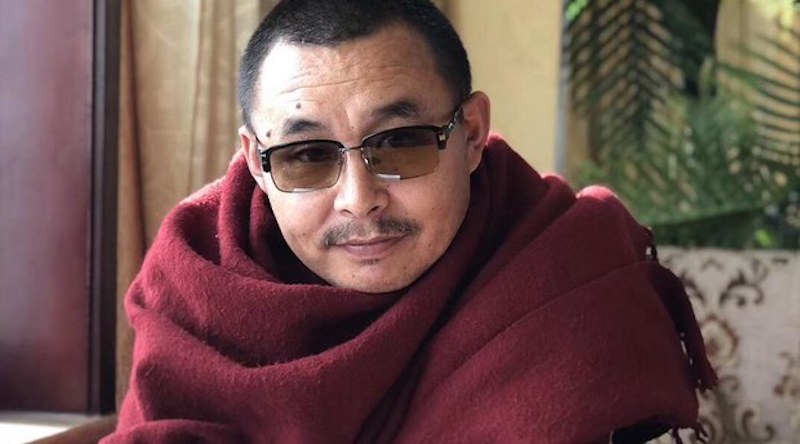By Choekyi Lhamo
DHARAMSHALA, Dec. 7: A Tibetan writer and poet named Gendun Lhundrup was reportedly arrested by police in eastern Tibet in the so-called Qinghai province on Wednesday. Radio Free Asia news service said, citing a source, that Lhundrup, a former monk at Rongwo monastery in Rebgong county in Malho Tibetan Autonomous Prefecture has been detained in an undisclosed location.
An unnamed Tibetan living in exile was quoted as saying, “Reports of his arrest are being widely discussed on social media, with many criticizing [China’s] communist regime for his detention.” The source also said the 46-year-old writer has been detained several times in the past.
“He has a profound interest in the preservation of Tibetan culture and has worked tirelessly for the cause [of Tibet],” he further said, noting that the poet’s work has been well received by both Tibetans inside Tibet and in the exile community. In Oct, Lhundrup released an anthology of poems called “Khorwa” and contributed on the website “Waseng-drak” that promotes freedom of expression for writers and artists without restriction.
Numerous writers, singers and artists have continuously been subjected to long jail terms for promoting their Tibetan national identity and culture. Prominent writer Tashi Wangchuk was arrested in Jan 2016 for his language advocacy and was sentenced to five years in prison after a one-day trial in 2018. In June, Tibetan singer Lhundrub Drakpa was sentenced to 6 years in prison for a song named “Black Hat” that was released in March last year. He spent his pre-trial detention in prison for more than a year without access to any legal representation.











One Response
Many Tibetan writers and signers have been arrested by the Chinese Govt. There is no genuine freedom of speech in Chinese-occupied Tibet, which was independent before the 1949-50 Chinese invasion. It’s time Tibet regained its independence. Only that and democracy will protect the Tibetan people from the oppression of the Chinese communists.